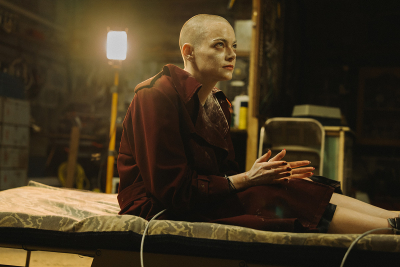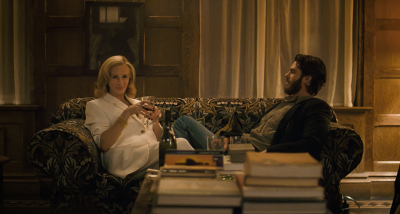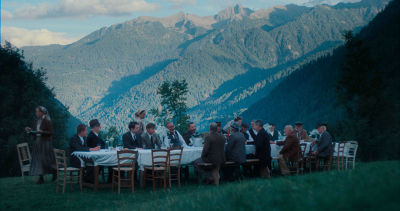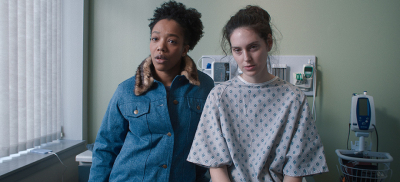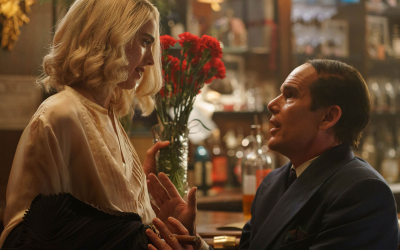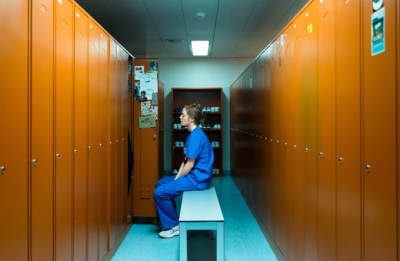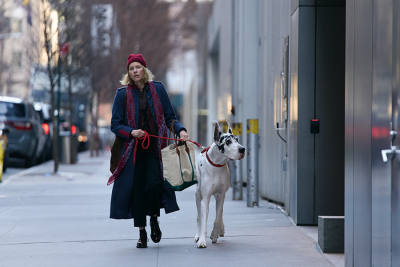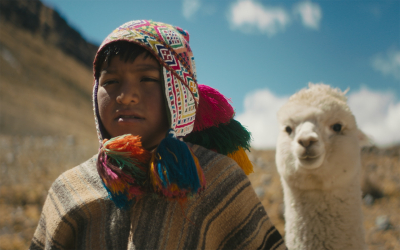Film
In the wake of publicity for Chloé Zhao’s Hamnet, an adaptation of Maggie O’Farrell’s award-winning novel of the same name, it gives nothing away to say that the success or otherwise of the film depends largely on the believability of its final scenes. A mother, who also happens to be the wife of William Shakespeare, has travelled to London to determine why her husband has named his newest play – a tragedy – after their recently deceased son, Hamnet. =
... (read more)In the same year that Apple TV’s series The Studio (2025) took a scalpel to modern-day Hollywood – a Hollywood beset by pandemics, wildfires, union action, sparring tech barons, punitive politicians, and the creeping, existential threat of artificial intelligence – here comes Noah Baumbach’s Jay Kelly, along with its hero Jay Kelly (George Clooney). Both film and protagonist are handsome, genial, and seemingly apolitical – throwbacks to a different, simpler, no doubt more naïve time.
... (read more)In recent years, much fuss has been made about our foremost filmmakers’ apparent reluctance to set their films in the present day. Instead, they have flocked to the comforts of nostalgia, just as audiences have.
... (read more)The Mountain Bride – Vermiglio (★★★★1/2), The Boy with Pink Trousers (★★★1/2), and La Grazia (★★★★★)
Maura Delpero’s The Mountain Bride – Vermiglio was the winner of the Silver Lion Grand Jury Prize at the 2024 Venice Film Festival. It is a film of austere beauty, as fragile as it is forceful. Set in the Trentino village of Vermiglio in 1944, it conjures a community perched on the edge – geographically at the border of Switzerland and Austria, historically at the close of World War II, and spiritually at the uneasy threshold between tradition and change.
... (read more)Agnes (Eva Victor) is a high achiever. Barely out of her twenties, she is already a faculty member of the English department at a north-eastern US college. The red brick college sits with certainty in the landscape; so should Agnes, but something is off. The cottage where she lives – narrow and tall, just like she is – feels isolated. At night she hears the wind in the trees and checks the door, waiting for something. A reckoning never materialises.
... (read more)Blue Moon (★★★★ 1/2), The Mastermind (★★★★) and If I Had Legs I’d Kick You (★★★)
Point to any one of the near 300 films at this year’s Melbourne International Film Festival (MIFF) and you will likely find a luminary vision of imperfection. For three weeks Melbourne’s cinemas housed testaments to the incapable, the broken, and the mediocre.
... (read more)Structured like a documentary but with the escalating tension of a tautly choreographed thriller, Late Shift follows one day in the working life of a nurse in a Swiss public hospital. Floria, expertly portrayed by Leonie Benesch, arrives at work mid-afternoon to discover that the third shift nurse has called in sick, leaving her and her colleague to tend to the two dozen patients on the ward with only the assistance of a student nurse.
... (read more)A woman loses her friend to suicide and inherits his dog, by his wish. The dog is a Great Dane, the size of a pony, who grieves for its companion, the woman’s friend, steadfastly. It has none of the embarrassment that people can sometimes feel about their own grief, its depth and insistence, its noisiness. The dog lies on the woman’s bed, taking up space, and though the metaphor is obvious – a big grief, a big animal – it isn’t only a metaphor. Apollo, for such is his name, is real enough, and dog enough, to cause a mess.
... (read more)EL 47 (★★★★1/2) and Through Rocks and Clouds (★★★★★)
While vastly different in tone, scope, and geography, El 47 and Through Rocks and Clouds (titled Raíz in Spanish) offer complementary visions of resistance – one overtly political, the other quietly poetic. Together, they provide a rich entry point into contemporary Spanish and Indigenous language cinema, balancing crowd-pleasing drama with subtle, art-house storytelling.
... (read more)



